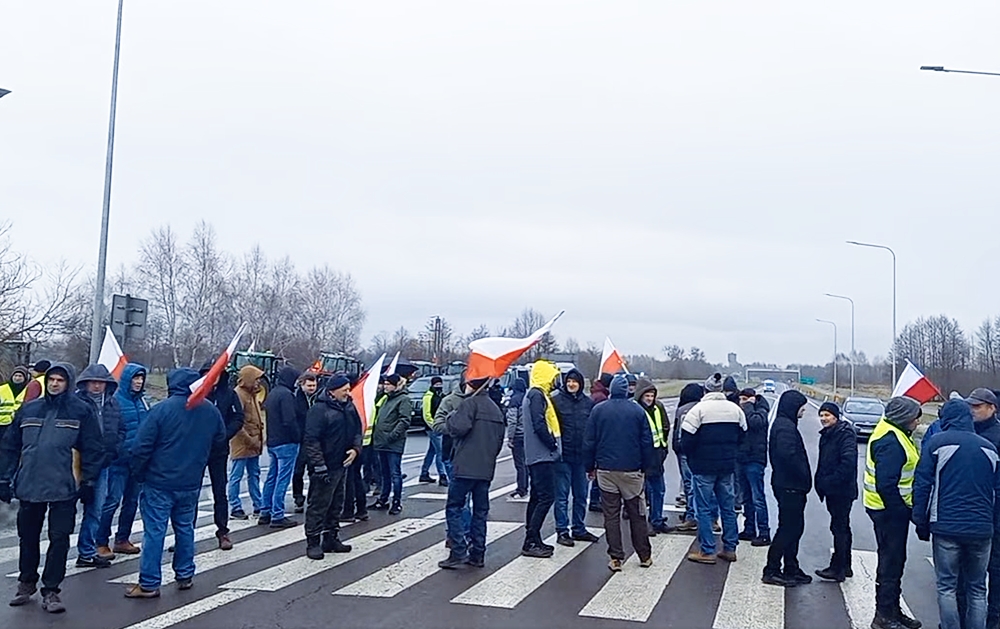In the Polish village of Dorohusk, just two miles from the Ukrainian border, Polish farmers protested on Thursday by blocking the road for several hours and stopping trucks from Ukraine to block the import of grain. Farmers claim Ukrainian grain, which was to be transported through Poland to reach other global markets, is being sold on the Polish market.
Several hundred protesters gathered at the site near the border crossing at Dorohusk, and in the town of Staszów, tractors blocked a rail terminal at which, they claimed, grain from Ukraine was being off-loaded and sold in Poland, undercutting Polish farmers.
Farmers believe that Ukrainian grain is cheaper because it does not have to meet the standards of grain production that are enforced in Poland. This is why they are demanding the reintroduction of tariffs and limits. They are also asking for full sanitary controls to be exercised in relation to the transport of Ukrainian crops.
According to Anna Bryłka, a farmer and politician from the Confederation party, Poland is not in reality a transit country and most of the grain actually stays in Poland. In 2022, the harvest in Poland was good and prices began to fall. She also claimed the grain coming from Ukraine is not from individual farmers but from large food-production companies run by oligarchs exporting hundreds of thousands of tons.
Bryłka said that between January and October 2022, Poland imported over 500,000 tons of rapeseed, whereas in the same period of 2021, that figure was just 80,000. The figures are even higher with regard to the import of corn: 1.4 million tons in 2022 compared to just 6,000 tons in 2021. The figure for the import of wheat in 2022 was also high at 1.7 million tons.
Poland lifted all limits on the import of grain on June 1, 2022, as part of the EU’s effort to create “solidarity corridors” so that Ukraine could export its grain, thereby helping the Ukrainian economy and preventing problems in Africa and the Middle East. The present conservative government in Poland backed the move.
The EU’s decision on the import of Ukrainian grain was taken when Russia was still blocking Ukrainian grain exports through the Black Sea. However, in July, Turkey and the United Nations brokered a deal by which Russia allowed Ukraine to move its grain across the Black Sea. As a result of the deal, Ukraine has been able to ship 14.1 million tons of grain from its three Black Sea ports.
Poland’s Agriculture Minister Henryk Kowalczyk said that while he understands the fears and concerns regarding the arrival of grain from Ukraine, people have to understand that the Polish government was obliged to help the country stay on its feet.






